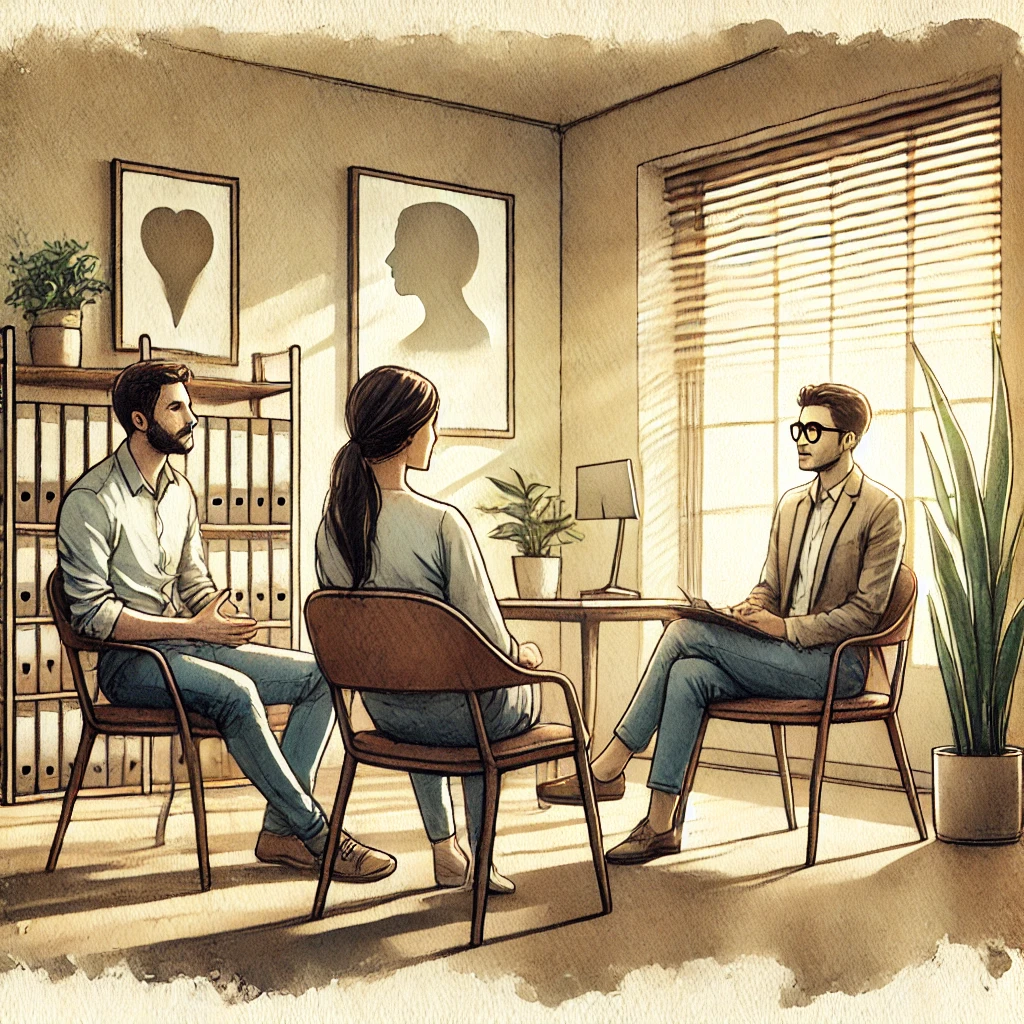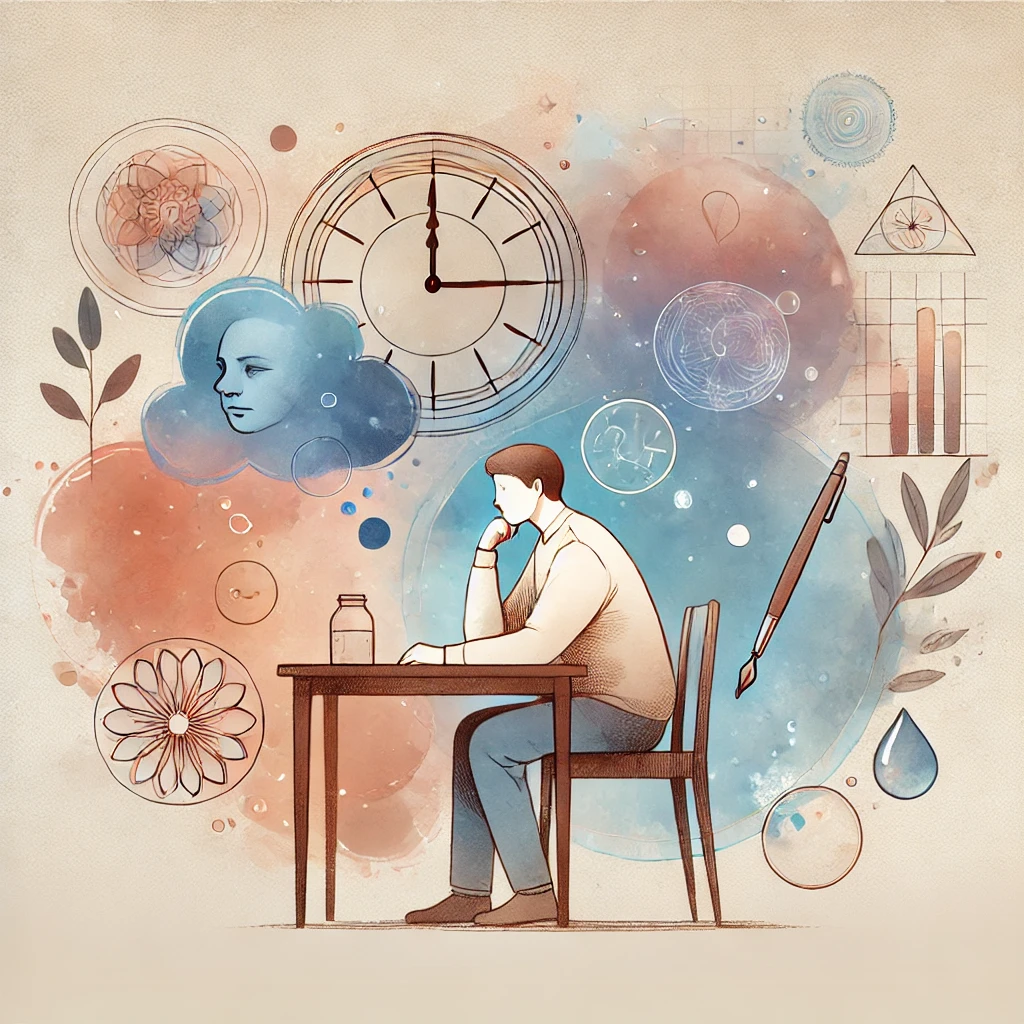
Is Marriage Therapy Covered by Insurance? A Psychoanalytic Exploration of Barriers and Possibilities

Impatience is a feeling we all know too well—whether it’s waiting in line, waiting for a promotion, or waiting for an emotional breakthrough in therapy. The feeling often leads to frustration, irritation, or even anger. But impatience, from a psychodynamic perspective, is more than just an emotional reaction to delays. It may be a reflection of deeper unconscious processes, including our relationship with time, mortality, and the complexities of human desire.
In an attempt to make sense of the destruction the would was engaged in during WWII, Sigmund Freud suggested an elemental “drive” towards self-destruction. Freud’s concept of the death instinct, or Thanatos, was this concept and provides a lens through which we can understand impatience as an existential and psychological phenomenon. According to Freud, humans have a fundamental, unconscious drive toward destruction and a return to an inanimate state—toward death itself. In contrast, the life instinct, or Eros, seeks growth, connection, and creativity. The tension between these two forces plays out in our lives in various ways, and impatience might be one manifestation of this conflict.
Impatience, in this light, can be seen as an unconscious response to the anxiety produced by the awareness that time is finite. The longer we wait for something, the more we are reminded of the passage of time, which in turn triggers feelings of existential dread. This dread is not always conscious, but it drives our behaviors and feelings, pushing us to seek immediate gratification or resolution as a way to defend against the deeper fear of life’s inherent limitations.
Existential psychoanalyst Rollo May echoed these concerns, suggesting that anxiety about death, or what he called “ontological anxiety,” is ever-present in human life. Impatience may arise when we feel a pressure to accomplish, achieve, or attain something within a limited window of time. In other words, impatience may be a way of reacting to the uncomfortable realization that time is slipping away, and with it, opportunities for fulfillment, success, or even survival.
Impatience also ties into Freud’s broader ideas about the death instinct. When we grow frustrated with waiting or delay, we might be unconsciously battling an inner awareness that, like all things, life itself has a limit. Impatience can be viewed as a symptom of the human desire to resist the slow unfolding of time, a manifestation of our wish to control or defy our eventual fate. When we experience this frustration with the passing of time, it’s as if we are pushing back against our unconscious awareness of life’s impermanence.
Think of the moments when impatience feels unbearable. A long queue at the grocery store, a delayed project at work, or waiting for a friend to respond to a text message can provoke a disproportionate emotional response. In these moments, we’re not just irritated by the delay but also perhaps reacting to a deeper, unconscious fear of wasted time, of life slipping away with no progress or accomplishment.
Donald Winnicott’s concept of the “transitional space” offers another way to understand impatience. Winnicott emphasized that the capacity to tolerate uncertainty and waiting is developed early in life, through our experience of holding environments—spaces where a caregiver meets the child’s needs in a reliable but not immediate way. When we can wait, we develop the ability to engage creatively and productively with life, rather than collapsing into anxiety or aggression when things don’t go as planned.
For individuals who have not developed this capacity, impatience can become a chronic problem. The frustration of waiting may trigger feelings of helplessness or inadequacy, signaling a deeper fear of not having one’s needs met in time—or at all. When viewed through this psychodynamic lens, impatience is not merely about frustration with external events; it’s tied to early developmental experiences and fears about survival, fulfillment, and ultimately, mortality.
Existential philosophers like Jean-Paul Sartre and Viktor Frankl argued that human beings are driven by a search for meaning. Impatience may be a symptom of the urgency we feel to make meaning out of our lives. When life doesn’t progress as quickly as we’d like, impatience arises as a defense mechanism against the fear that we are wasting precious time.
For example, we often see impatience during transitional life phases—waiting for a promotion, anticipating marriage or parenthood, or striving for success in therapy. In each case, the individual is not only waiting for an external outcome but is also grappling with deeper questions about the meaning of their life and the time they have left to achieve their goals.
Melanie Klein’s theories of projection and splitting can also shed light on impatience, particularly in the context of relationships. Klein believed that when individuals feel overwhelmed by internal anxieties, they may project their frustration onto others. Impatience in relationships often arises when we expect others to fulfill our emotional needs instantaneously, reflecting an unconscious desire for control and the avoidance of our own internal distress.
In romantic or familial relationships, impatience may reveal unconscious fears of abandonment or rejection. When our partner, friend, or family member doesn’t meet our expectations right away, impatience emerges as a defensive reaction, protecting us from the deeper anxieties about whether we are loved, accepted, or valued.
From a psychodynamic perspective, addressing impatience requires an exploration of its underlying causes. Recognizing how impatience is linked to existential anxieties, fears of mortality, and early developmental experiences can help us approach it with greater understanding and compassion. Therapy, particularly psychodynamic therapy, offers a space to explore these deeper layers, allowing us to understand how impatience serves as a defense against more uncomfortable emotions and fears.
By developing greater insight into the root causes of impatience, we can cultivate the capacity to wait, tolerate uncertainty, and embrace the slow, often unpredictable unfolding of life. Ultimately, this allows us to move beyond the fear of time’s passage and engage more fully in the present, leading to deeper satisfaction and fulfillment.
Impatience, often seen as a mere frustration, has deep roots in our unconscious fears about time, mortality, and the limits of life. By exploring this feeling through a psychodynamic lens, we can begin to understand impatience not just as an emotional response to delay but as a defense mechanism against the anxieties we face about the passing of time and our eventual fate. Therapy may provide a space to engage with these unconscious fears, helping individuals develop the patience and insight necessary to navigate life’s inevitable uncertainties with grace and understanding.
We help people navigating anxiety, identity concerns, relationship strain, and emotional burnout—especially those who often carry a lot without letting it show. If you’re looking for something deeper than surface-level fixes, psychodynamic therapy might be right for you.
Dr. Brian Sedgeley, is a clinical psychologist and the president and founder of Bay Psychology Group, Inc. a psychotherapy and psychological services clinic in Oakland CA.